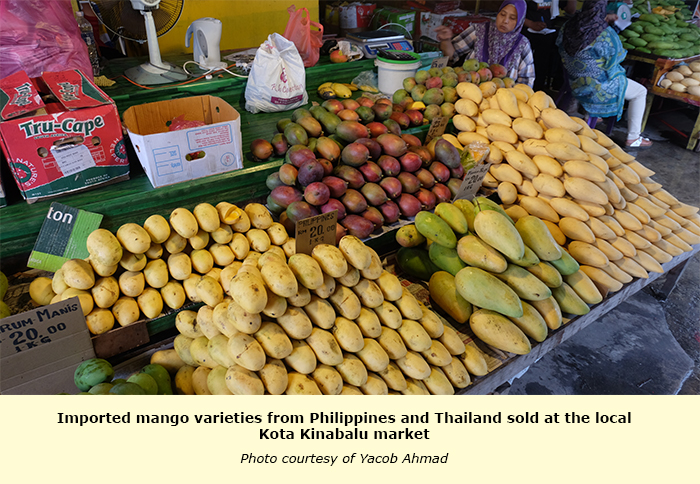Sabah, the second largest Malaysian State with an approximate area of 73 million hectares, is situated in the North Eastern part of Borneo Island. The State is a popular tourist destination for its pristine beaches, beautiful islands, tropical forests and the highest mountain in South East Asia. Sabah is also popular and known for its seafood products and in horticulture, particularly plantation crops where oil palm and rubber dominate.

According to estimates about 2.1 million hectares are considered suitable for agriculture. While the State has been actively cultivating oil palm for the past few decades, it now has plans to diverse into food production by enhancing its production of tropical fruits and fruit based products.
With the potential market of fruits in the region due to increase in incomes and expanding middle class, notably in China, the State is looking at the prospects of expanding its fruit growing areas especially for superior durian and pineapple cultivars. To address and discuss some of the concerns and way forward to achieve the goal of a major regional fruit player, a seminar entitled ‘Tropical Fruits: the next golden crop for Sabah’ was held at State capital, Kota Kinabalu, from 14 – 16 August 2018. The seminar was jointly organised by the Sabah Society of Agricultural Scientists (SASS) and Sabah Department of Agriculture.
The seminar was officiated by the Sabah Minister of Agriculture, Honourable Mr. Junz Wong, who expressed confidence that the plan to transform Sabah into a major fruit production player in the region can be materialised. The Minister also stressed that it was imperative for the private sector or industry players to collaborate and support the government’s efforts to advance the tropical fruit agenda in Sabah.
The seminar which comprised of 18 presentations, 10 posters and 5 booths succeeded in attracting more than 120 participants from government agencies and the private sector. Topics discussed ranged from basic agroclimatic / soil suitability requirements, potential underutilized fruit types, production techniques, good practices, postharvest losses, pests and diseases, market potential and trade requirements. With increasing demand, improved production techniques, faster communications, better market networks, online marketing platform and more efficient transportation network, the seminar seems timely and marks an important beginning for the fruit industry in Sabah.
International Tropical Fruits Network (TFNet) was invited to present on the current situation of tropical fruits and trade in the Asian region. Mr. Yacob Ahmad, representing TFNet, also provided inputs on the direction which would augment competitiveness in response to the quick pace of tropical fruit development in other countries in the region.
TFNet strongly recommends that a practical and strategic implementation plan be formulated to ensure that the objectives of the initiative are met to ensure sustainability of the tropical fruit industry in Sabah.
